I am a Cancer Survivor and Fighter
That stopped me in my tracks. Is this what defines me now? I realized that we all have so many different definitions by which we are identified, some that change with time and others that are a part of us forever. Not so long ago, I was the daughter of my loving parents and a student, and then a girlfriend and a wife to Pavan, my amazing pillar of strength, a daughter-in-law and then a civil servant. As time elapsed, a mother to two absolutely wonderful boys, Angad and Akram, and simultaneously, an expatriate globetrotting non-resident Indian (NRI). But in the last three years, first when cancer took a hold on me, and today, when I have recovered, this is an identity that is completely and fully a part of me. I am a cancer survivor, at least till such time as I continue to survive!
Having lived in several different countries, away from home, for over five years, it was in 1999 in Warsaw, Poland that I started feeling constantly tired and always constipated. In our annual pilgrimage to Delhi in December that year I underwent a series of tests, all of which came up with nothing abnormal. My friends teased me about growing old and being full of shit. Little did I know that I would soon be handling it too!
It was in the second week of November 2000 that the constipation became extremely severe. I visited the neighborhood medical clinic in Warsaw. This was popular with expatriates since the doctors spoke good English and had engaging bedside manners. The doctor gave me some laxatives. But by the morning of November 11, I was totally constipated and in intense pain. A pain of the kind I had in labour when I was expecting my second son. I almost collapsed and fainted in my older son’s classroom where I had gone to help out. With the help of a good friend, I barely made it to the clinic. An X-ray was taken and the consultation with an ’eminent’ Polish surgeon revealed ‘nothing that another enema shouldn’t clean out’. But the pain only grew worse, and finally after searching for a hospital that would admit me, I was moved by ambulance to a military hospital in Warsaw.
Another X-ray was taken, barely six hours after the earlier one. The doctors and nurses, in their extremely limited English, tried to explain to me that I would need to have an operation, that there was a blockage in my colon, that they may have to cut my intestines and give me a bag on my side. Crazy with pain, hysterical with fear, never having heard of a colostomy before in my life, I didn’t know what they were talking about, and in true expatriate fashion, begged my husband that we fly to London, New York or even back home to India. Unfortunately I was in no position to be moved out of the hospital, let alone out of the country. Also, if the doctors didn’t operate immediately, I was in danger of losing my life.
On the night of November 11, 2000, just after a week of intense pain and absence of any bowel movement, with a condition worsened by laxatives and enemas, I underwent an emergency surgery. That too in a foreign land, by foreigners we could scarcely communicate with, leaving me with a foreign apparatus on my side, and a disease, the nature, magnitude or impact of which was completely foreign to Pavan or to me. The Hartmann’s procedure was carried out leaving me with a colostomy and distal rectal stump. After several hours, the surgeon came out of the operation theatre and in a matter of fact manner told my husband that he had removed a nearly eight centimeter tumor from my colon, which had all the signs of malignancy.
I cannot even begin to imagine what that night or this announcement did to my husband. But when many months later I did ask him about it and how he told the boys and the rest of our family, it was the first time that I actually cried.
As we waited for the biopsy results, I promised God that if He gave me a chance I would fight. I was diagnosed a T3, N0, M0 Duke’s B Resected Carcinoma Sigmoid Colon. The tumor had been cleanly removed and it had not penetrated the intestinal wall. While some of the doctors advised me that I needed to do nothing further and that I had had a lucky break, others advocated adjuvant chemotherapy. On the advice of a top oncologist in London, I commenced a 12-cycle treatment of adjuvant chemotherapy in the De Grammont regime at two weekly intervals, with every fourth cycle at the posh London Clinic, the rest in Warsaw. These were discontinued after the eighth treatment when I developed angiogenic oedema. My colostomy was reversed and continuity of the GI tract restored in May 2001 at St. Marks Hospital, London. And after one false alarm of primary ovarian cancer or metastasis, which resulted in the removal of an ovary in September 2001, today I am well and branded as a cancer survivor.
But this fairly clinical account does not even begin to capture the disbelief, the shock, the ignorance, the pain, the anxiety, the sorrow and the devastation. Not just mine, but that of my entire family, my parents and in-laws in Delhi, my siblings and Pavan’s sister and their families scattered in different parts of the world, and my friends. The troubled and bewildered faces of my sons, only seven and three at that time, who were too young for complete explanations as to why their mother was in and out of hospitals for long spells or why she looked the way she did.
It does not reveal the tremendous outpouring of love, support, care and concern. The prayers and blessings that I received, especially from my family. The maturity with which my seven-year-old told me that he had always replied to questions about my health with a “She’s fine; she’s doing better,” because he didn’t want anyone to feel that everything was not okay in his life. It does not speak of the immense courage, fortitude and positivism of that phenomenal man, my husband. Pavan had just moved to Seoul in October 2000. The boys and I were to have followed in December. Initially he traveled back and forth and then Bank of America, where he worked, generously offered that he could temporarily run the Korea business from Warsaw. This meant he was doing two jobs simultaneously, working nights for Korea to allow for the time difference and looking after me, being my pillar of strength, handling all medical matters and keeping together a file that grew thicker by the day, taking on a life of its own!
All my family visited us one after the other. For the entire seven months of my treatment and surgeries, there was always someone from home, at home. To be with the kids, to help hold my home together, to offer a shoulder to weep on, to give confidence and to share in our struggles. Even as Pavan and I traveled to London every other month. I was in and out of hospitals three days at a time every 12 days, and Pavan handled his two jobs. My two Indian friends in Warsaw, Anjali and Alu practically gave up their lives to help me hold mine together. They were forever kept busy organizing meals, my children’s school, homework and play dates, ensuring the comfort of my visiting family. They even organized a visitor schedule so that I was not inundated by visits. Nevertheless, I had some visitor with me most of the time. Not to say that my other friends didn’t help. There was Anna and her husband who went out of their way to find the right doctors and hospitals for us to go to. Julie, who brought me a three-course meal, candlelight and all, to my bare hospital room. The others who saved me from that awful hospital food, the last meal of the day being bread and weak tea that was served at 4.00 p.m. The lovely Lisa who cropped off her hair when I was scared of losing mine; and Lyann, my housekeeper, who moved in with her little girl and worked night and day to look after us. But truly, when a family or a friend is in crisis, there are no people like the Indians for really being there and helping out, sacrificing their own lives and time, putting everything else on hold. My doctors and nurses, and other patients in the wards, both in London and Warsaw, used to comment on it all the time, their constant refrain being how lucky I was to be an Indian.
I was lucky too to get the right medical help all along. Spending so much time in hospitals in London and Warsaw and getting second opinions from Mumbai, Boston and New York brought home the realization, more than ever before, that medicine is as much an art as a science. There is no single correct way. That most doctors tend to disagree with what others may recommend though they may not do so outright. That you need to arm yourself with your own information about your disease and have control over your treatment. That at some stage you have to have faith in your doctors, believing that they have your well-being at heart and that they are doing their best by you. In the end, that they are really the instruments of the Divine, achieving for you what He wills. I must confess that since I have returned to India, I am distressed by how difficult it would be to repose that faith in a doctor or a hospital here, as you wonder whether it is your well-being or their pocket that is closer to their heart! How commercial and money-minded medicine here has become! How expensive cancer treatment is for the common man! In Warsaw, I had all my treatment in a state hospital, basic but clean and neat, and cancer treatment in Poland is completely free in all state hospitals. There was the realization that irrespective of the hospital being the five-star London Clinic or the state-run Marie Curie Hospital or the Warsaw Military Hospital, or for that matter any place here in India, what matters in the end is the ability, skill and competence of the medical staff. While healthcare facilities may be much better in the developed western countries, there are highly skilled, extremely able and knowledgeable doctors even in developing countries like India and Poland. It is just your luck, your fate, your karma that brings you into the hands of the right person. And every time the sweet comforting sisters and nurses at the London Clinic struggled to find my vein, I longed for Sister Malgorzata, in Warsaw, who with the tiniest smile on her face, would roll up my sleeve, grab my hand and bingo: shoot straight into the right spot! It is said that treatment of cancer is almost as bad as the cancer itself. Yes, I lost most of my hair, all my eyebrows and eyelashes, which I’ve always liked to use to good purpose. Then there was the pigmentation and sores and the endless pinpricks as the nurses struggled to find my veins. But far, far worse, was the horrible depression I slipped into. I remember the exact day it began. From the beginning of my diagnosis, I had been upbeat in the hospital in Warsaw. And also while we went around Warsaw with a friend and her doctor husband to get a second, third and endless more opinions on whether I needed further treatment. It was in a London hotel, the night before we were due to meet an eminent oncologist, something just snapped in my mind. Everything was suddenly bleak and scary and miserable. I fell apart completely. My gait became unsteady. If I sat on a chair I constantly felt that I was going to fall off. While I needed people around me all the time, I had nothing to say to anyone, not even to my children, a completely distressing feeling for a mother who had talked to them incessantly while they were in her womb! I couldn’t read, write or do anything. I was unsure of everything. I had no opinions left. I was simply not myself anymore.
I wasn’t angry. I didn’t even once think or say ‘Why me?’ But I hated the mornings because it meant I had to get up. I hated the colostomy, the bag that had to be frequently changed, the occasional mess that I created, constantly reorganizing the supplies, trying out different bag types to see which suited best. I ran myself down constantly, comparing myself with others and finding myself wanting. Nothing I had or did was good enough. I was filled with all sorts of regrets for things I had done or hadn’t done. I welcomed the nights, even though my sleep was intermittent and interspersed with panic attacks.
I knew many people were surprised. I surprised myself! Where was the strong, brave, independent, levelheaded woman we all knew? I had been spared. I was okay. The chemotherapy I was having was just preventive. My colostomy was reversible, while there were people who lived with one all their lives. Why did I not take heart from the fact that I was well? I had had a narrow brush with death, and with cancer. But I was okay. Other people coped with much, much worse, with so much more fortitude and courage.
Whether it was the passage of time, or the constant support of my husband despite his not understanding why I could not talk myself out of it. Or the love and caring of my family and friends who never once gave up on me. Or my all-consuming work on the Board of the American School of Warsaw and in the Cancer Hospital’s voluntary program. Or the wearing off of the toxins that my body had been subjected to. Or the anti-depressants I had for a month. Or maybe it was the desire never to go back to this Polish psychiatrist who told me reassuringly that some people live with a depression all their lives! Perhaps it was a combination of them all. But on a well-deserved family holiday to Disney World in August 2001, the depression simply sloughed off, never to return, thank God.
The doctors say that I am cured of my cancer, and hopefully it will not return. My check-ups so far have been clear. I saw death at close quarters, and lived in constant fear of dying for a long time. But gradually the threat of death made me more and more aware of my life. And as I grew better and stronger I realized that in celebrating life every day and every moment, the fear of dying fell away. As the joy of reading returned to my life, in Christiane Northrup’s ‘Women’s Bodies, Women’s Wisdom’ I read something that made a significant difference to me, allowing me to overcome my fears of recurrence and dying. In the words of Christiane, “There is a difference between healing and curing. Healing is a natural process and is within the power of everyone. Curing, which is what doctors are called upon to do, usually consists of external treatment, medication or surgery. Healing goes much deeper and must always come from within. Healing and death are not mutually exclusive. Physicians are trained to improve and preserve life. But sometimes one needs to let go of that thought, and accept death as a natural part of a process that is much bigger and more mysterious than we realize. Understanding that bigger meaning of healing is too an opportunity to come more deeply and fully into life.” Being cured is to do with whether I got rid of the disease or not, whether I lived or not. I could die a completely healed person. So I focused on healing. The statistics on the resurfacing of my cancer can say what they will. I will say that I am and will always continue to help myself to heal. Dr. Northrup says, “No matter what has happened in life, we have the power to change what that experience means to us and thus change that experience, both emotionally and physically. Therein lies our healing.”
I decided that I would not let my life be overtaken by the cancer or depression again. I would surround myself with positive energy. I had to be positive, think positive. Negative events and incidents, negative energy, I would address and try not to let them affect me or disturb my positive energy. If I was unable to rid myself of the negative influence, I promised myself I would proactively do something about it. This has also meant that I now directly address differences with the people who matter, unlike in the past when I simply bottled them up or swept them under the carpet! I don’t know whether they appreciate this new me, but it does drive away the negative and I hope in time they will understand and espouse this more direct and positive way. Much later, I read Anup Kumar’s chapter on ‘Thinking Positive’ in his ‘The Joy of Cancer’, which helped to further strengthen my resolve. The chapter on ‘Harnessing the Support of Family and Friends’ clarified that the pain, hurt and resentment caused by a few friends who had shown no real concern or support was creating unnecessary negativity in my environment, which was something that I could do without. Whatever be their reasons, their character or their explanations, I needed to think of myself first.
I had lived so much of that year filled with regrets, that I promised myself that I would not let that happen again. My husband says, “Whatever you do, focus on it, do it to the best of your ability and with the best of intentions at that point in time. Then, even if it turns out to be wrong in retrospect, at least you won’t regret it.” This advice sometimes conflicts with my philosophy of celebrating life, i.e., living each moment fully and doing as many things as possible at the same time, reasonably, rather than just one to the best of my ability. I am working on a technique of actually stopping and checking with myself whether doing or not doing something will cause regrets later. This does mean that I tend to squeeze in way too much into each day. I am now almost always five minutes off the clock. And worse, it is burning a deep hole in our pockets because 95% of the time when I come out of a shop wondering if I will regret not buying something I liked, I go right back in and buy it! I had cancer. I survived. But it was a defining time. In many ways it changed me, my values, my outlook, my priorities and in fact, my inner being. My husband and I had always planned on returning to India. What we went through strengthened our resolve to come back to India, to do something more meaningful, to ‘give back’ and to thank God for how much He has given us and in how many different ways.
We returned to India in June 2002. In Paul Coelho’s ‘The Alchemist’, I read that everything that happens to you in life, good or bad, happens for some purpose. If you learn from it and grow from it then it was worthwhile. Otherwise it was just another missed opportunity. We all have a personal legend, a destiny and to realize this destiny is our one true obligation. The things that surround us, the events that happen are often omens. They point the way. They help us in working towards our destinies. We can ignore them, as we often do, especially when they are small or trifling. It is far easier to see them as omens when they are big.
My cancer and the enormous upheaval I went through were also omens. What happened to me and when it did, was a part of my ever-evolving destiny. I have been blessed. The best way I can think of thanking God is to help others who have been affected by cancer and their families. On my return to India, I decided not to go back to my job with the Indian Railways. I had joined the government, at least in some measure, for idealistic reasons. I now believe that I can use my abilities and talents, such as they are, and my knowledge and experiences, to another, maybe bigger purpose.
When I was at the clinic in London, the nurses from Cancer BACUP, a cancer support organization, offered a lot of support, and helped allay anxieties and fears, even about the mundane, trivial things like falling hair! In Warsaw, we formed a ‘Helping and Healing’ support group of expatriate women who had survived cancer and learned that the power of talking about one’s personal truths is a significant part of the healing process. We realized how helpful it would have been had we been there for each other during our traumatic phases and we were able to help others who were afflicted with the disease and who were willing to talk about it and fight it. As soon as I was mentally able to, I went back to volunteer activity of teaching English under a program called ‘English is Fun’. This time I taught Polish nurses at the cancer hospital I had been treated in. At the same time, I was increasingly drawn to the children’s cancer wards.
Today, I work with several cancer support groups, Cancer Sahyog, an emotional support group of survivors and caregivers, Pallium India Trust set up to facilitate the growth and spread of palliative and home care services to terminally ill patients and their families in India; and Cancercommunicate.org which aims to spread cancer awareness through the media. Importantly, I have in the last few months stepped out on the path of fulfilling a cherished dream… to work with children whom I love, helping people affected by cancer and tying it all up somehow with education. In January this year we set up CanKids…KidsCan (as a unit of Indian Cancer Society) for children faced with cancer.
This, I think is my destiny, and I pray to God to give me the strength to make it work.
About The Author: Poonam Bagai is the Founder Chairman of Cankids

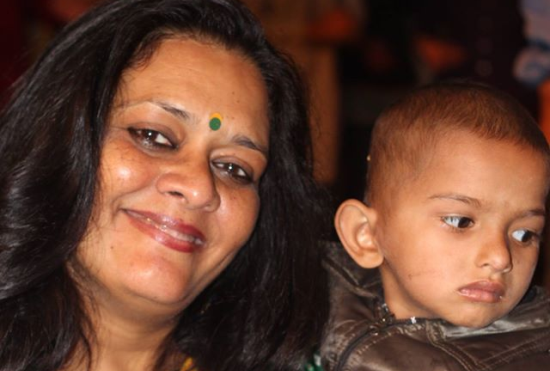
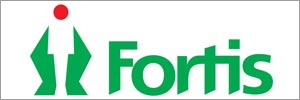



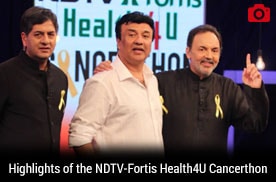
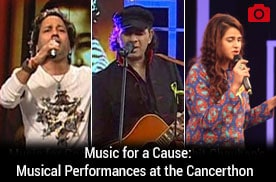
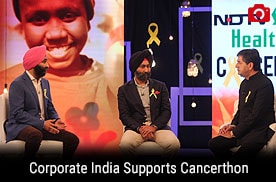
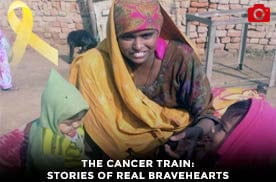
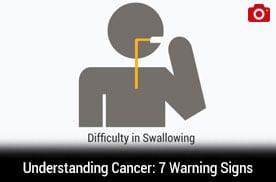
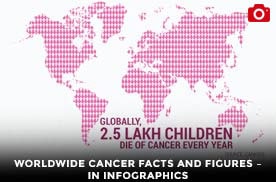
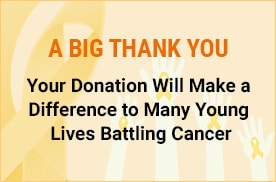
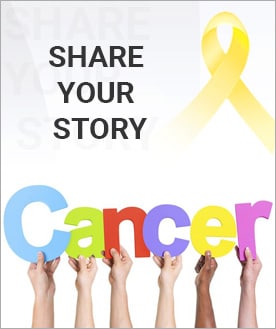
Ma’am, Truly I appreciate your efforts and strength, not just as a human being also as being a fighter myself. I am not yet a survivor but will be soon. Will do the same as you are doing for persons like us in future.Salute u.
Hi, Nice to hear that you fight against cancer disease and survived.This type of post’s help lot of people to develop their will power.I think you should maintain a social group with some of the cancer survivors and their stories.which may help some of the patients .Please post on facebook.com. Thank you for this post keep posting